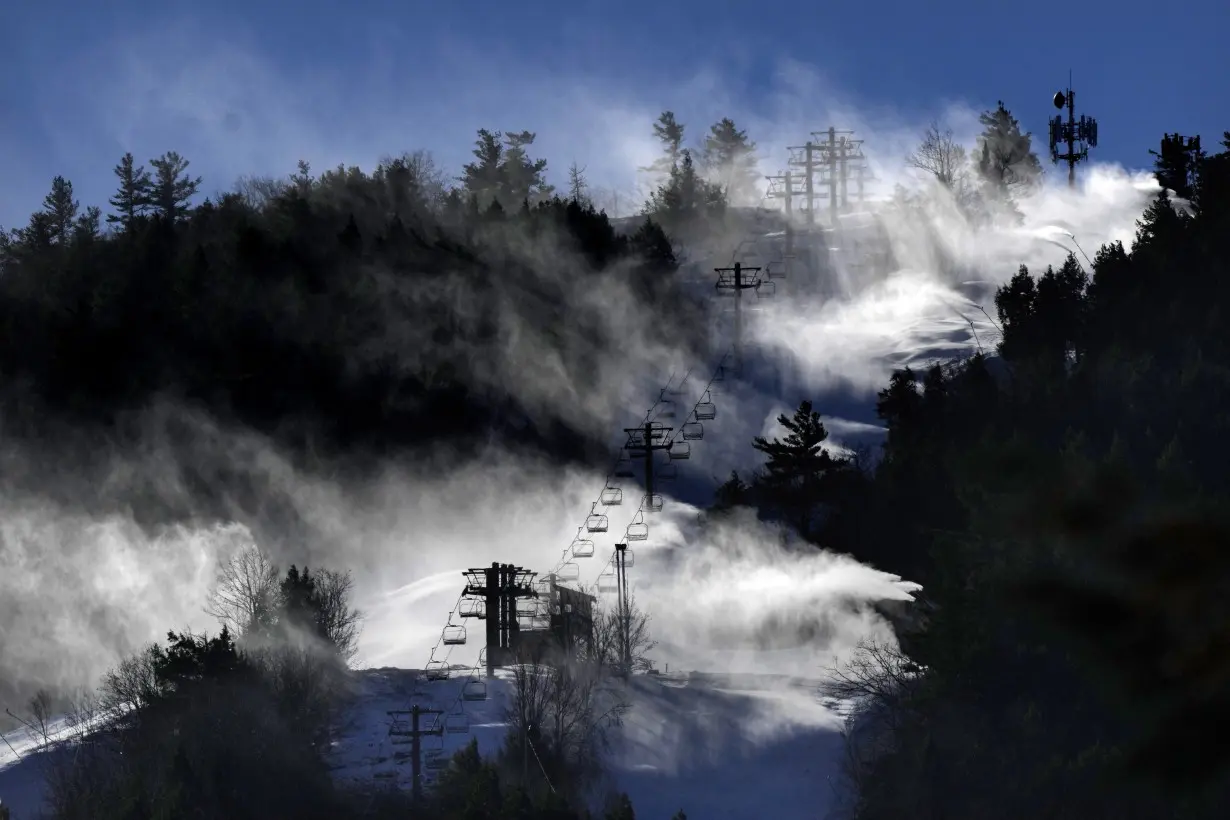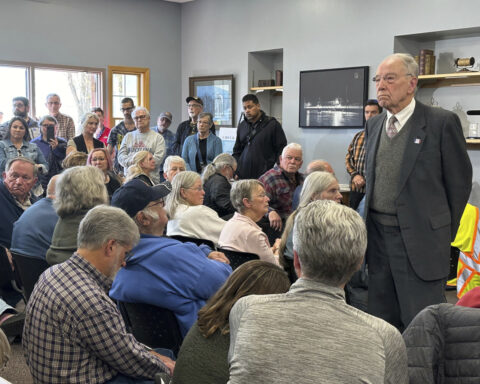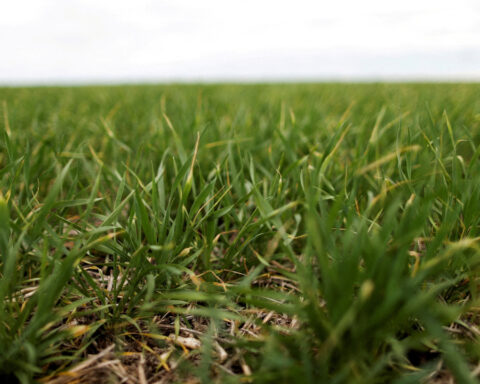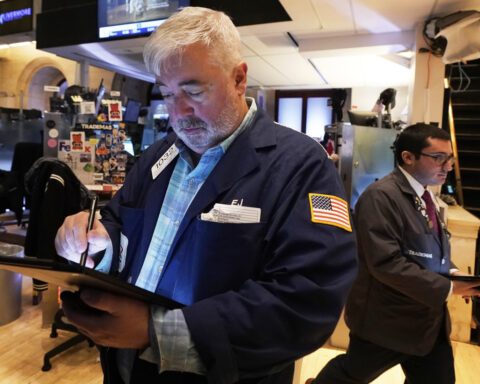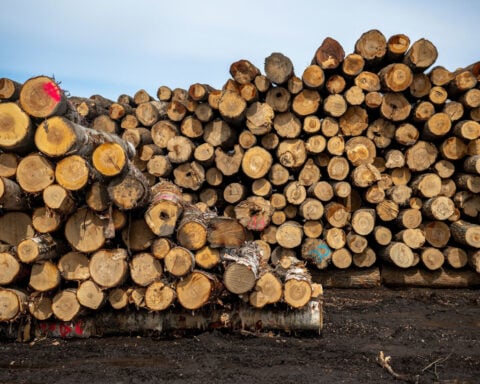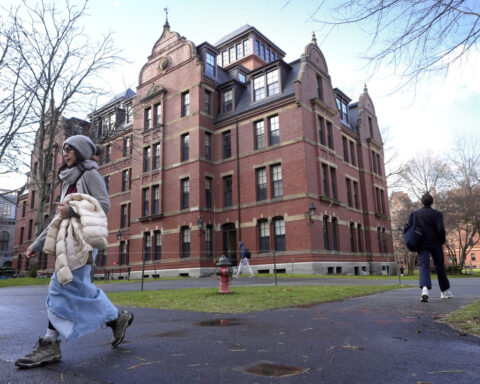DENVER (AP) — U.S. ski areas lost $5 billion from 2000 to 2019 as a result of human-caused climate change and could lose around $1 billion annually in the 2050s depending on how much emissions are reduced, a new study found.
People “may not care about the loss of the species halfway around the world, or a flood that’s happening in some other part of the world. But sport is often something people care about,” said Daniel Scott, a scientist at the University of Waterloo and study co-author. "And they can see some of these changes happening.”
Warm weather has upended winter recreation across North America and Europe this year, cancelling a 250-mile dog sled race in Maine, opening golf courses in Minnesota, and requiring snow saved from the previous year to run a ski race in Austria. A warm, dry El Niño weather pattern coupled with global warming is to blame, scientists say, and has put the threat to winter on center stage.
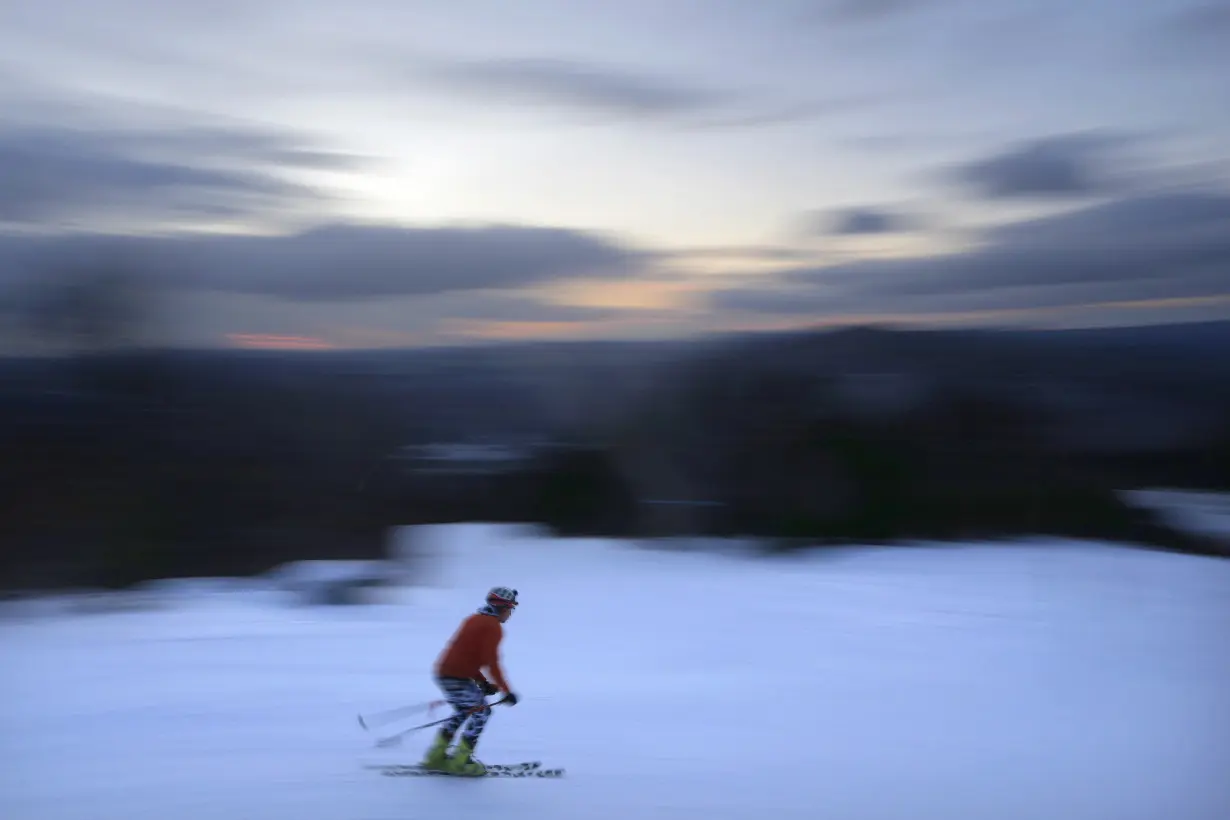
“It’s a now problem, not a future-looking problem,” said Auden Schendler, senior vice-president of sustainability at Aspen One, a ski and hospitality company that helped fund the study, published in Current Issues in Tourism.
It models what average ski seasons would have looked like from 2000 to 2019 in the four major U.S. markets — the Northeast, Midwest, Rocky Mountain and Pacific West — without climate change. Its baseline comparison is ski seasons from 1960 to 1979 — a period when most ski areas were operating and before significant trends of human-caused warming began. It found the average modeled season between 2000 and 2019 was shorter by 5.5 to 7.1 days, even with snowmaking to make up for less natural snow.
Under an optimistic emissions reduction scenario, the future of the U.S. ski industry would see seasons shortened by 14 to 33 days in the 2050s, even with snowmaking. A high-emissions scenario would nearly double the days lost.
Countries meeting for annual climate talks agreed in December that the world needs to be “transitioning away” from the fossil fuels that are heating the planet to dangerous levels, but set no concrete targets for doing so. Earth last year had its hottest year on record, and monthly records have continued this year.
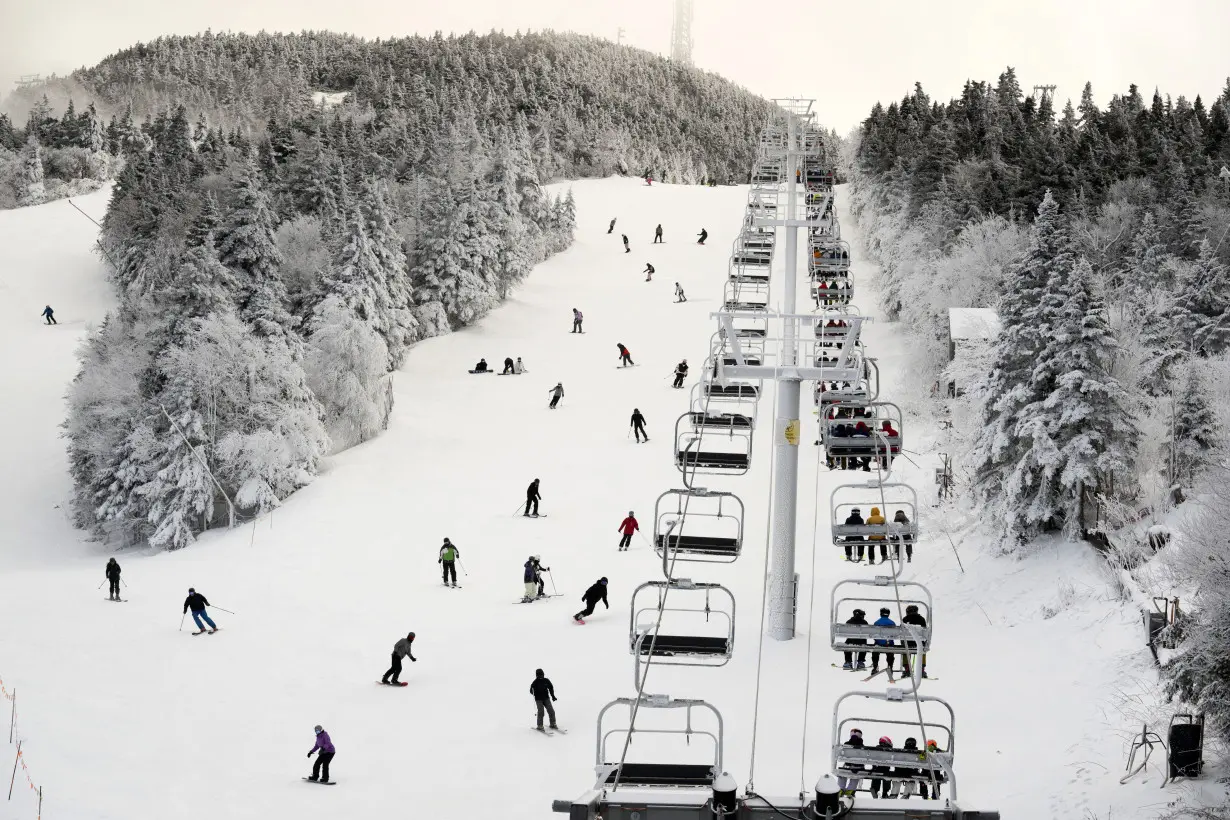
“The future of the ski industry, if that’s something you care about, is really in our hands and it will play out over the next 10 to 15 years in terms of the policies and actions that we take to reduce emissions,” Scott said.
The researchers calculated economic losses based on increased operating costs for snowmaking along with lost skier revenue. Scott called the estimates “probably somewhat conservative,” noting that they don't include such things as the loss of money that skiers spend on goods and services in winter sport communities.
The researchers said they undertook the study in part to fill a void in good data about how much climate change was costing the ski industry. They also suggested such data would be needed if the industry pursued lawsuits against fossil fuel producers, citing as a precedent ongoing litigation by several Colorado communities that are suing oil companies ExxonMobil and Suncor Energy for the cost of adapting to the impacts of climate change.
The researchers wrote that snowmaking is “no longer able to completely offset ongoing climate changes” and said “the era of peak ski seasons has likely passed in most U.S. markets.”
David Robinson, a Rutgers University researcher and the New Jersey state climatologist, made the same point as he called the study interesting and solid.
“It's not going to stop snowing,” said Robinson, who wasn't involved in the work. But “things such as snowmaking are only going to be able to go so far where it's being done now” as the planet continues to warm.
Julienne Stroeve, a senior scientist at the National Snow and Ice Data Center, who also wasn't involved in the work, said the study doesn't address how skiers and snowboarders might respond to declining quality of the snow that does fall. She wondered whether skier behavior will change if poor snow conditions become more frequent.
That change in skier behavior is known as substitutability, Scott said. If skiing isn't an option or doesn't provide good snow conditions, will people travel to another ski area? Turn to mountain biking? Scott said he would like to find out.
“That’s another one of those things we’d love to know more about, because then you could improve the modeling,” he said.
___
The Associated Press receives support from the Walton Family Foundation for coverage of water and environmental policy. The AP is solely responsible for all content. For all of AP’s environmental coverage, visit https://apnews.com/hub/climate-and-environment

 Trump has begun another trade war. Here's a timeline of how we got here
Trump has begun another trade war. Here's a timeline of how we got here
 Canada's leader laments lost friendship with US in town that sheltered stranded Americans after 9/11
Canada's leader laments lost friendship with US in town that sheltered stranded Americans after 9/11
 Chinese EV giant BYD's fourth-quarter profit leaps 73%
Chinese EV giant BYD's fourth-quarter profit leaps 73%
 You're an American in another land? Prepare to talk about the why and how of Trump 2.0
You're an American in another land? Prepare to talk about the why and how of Trump 2.0
 Chalk talk: Star power, top teams and No. 5 seeds headline the women's March Madness Sweet 16
Chalk talk: Star power, top teams and No. 5 seeds headline the women's March Madness Sweet 16
 Purdue returns to Sweet 16 with 76-62 win over McNeese in March Madness
Purdue returns to Sweet 16 with 76-62 win over McNeese in March Madness
